Eggplant Plant
- January 8, 2024
- 0 comment
Eggplant, scientifically known as Solanum melongena, is a versatile and globally celebrated vegetable with a rich history and culinary significance. With its glossy, purple-skinned exterior and a spongy, creamy interior, eggplants have become a staple in various cuisines worldwide. This nightshade family member, also referred to as aubergine or brinjal, boasts a unique combination of flavors and textures, making it a favorite ingredient in both savory and sweet dishes. Beyond its culinary uses, eggplant plays a vital role in sustainable agriculture, contributing to crop rotation and biodiversity.
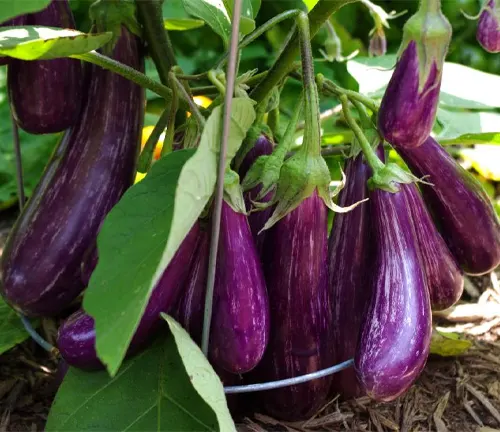
Cultivating eggplants involves understanding the plant’s preferences for well-draining, nutrient-rich soil, ample sunlight, and warm temperatures. From classic varieties like Black Beauty to more exotic options, the world of eggplants offers a diverse array of shapes, sizes, and colors. As a low-calorie vegetable, eggplant also brings nutritional value to the table, containing fiber, vitamins, and minerals. Whether grilled, roasted, fried, or baked, eggplant’s adaptability in the kitchen makes it a dynamic addition to any meal. This overview captures just a glimpse of the eggplant’s multifaceted nature, encapsulating both its cultural significance and its role in agriculture and nutrition.
| Specification | Details |
|---|---|
| Scientific Name | Solanum melongena |
| Common Names | Eggplant, Aubergine, Brinjal |
| Family | Solanaceae (Nightshade family) |
| Culinary Uses | Versatile; used in various savory dishes |
| Appearance | Glossy purple-skinned, spongy cream interior |
| Varieties | Numerous, including Black Beauty, Graffiti |
| Growing Conditions | Well-draining, nutrient-rich soil; warm temps |
| Sunlight Requirements | Full sunlight |
| Nutritional Value | Low in calories; contains fiber, vitamins |
| Culinary Preparations | Grilled, roasted, fried, baked, stewed |
| Global Significance | Integral in diverse cuisines worldwide |
| Agricultural Role | Contributes to crop rotation and biodiversity |
| Sustainability | Plays a role in sustainable agriculture |
| Special Characteristics | Nightshade family member; adaptable in cooking |
| Cultural Names | Aubergine in Europe, Brinjal in South Asia |
Varieties of Eggplant Plants
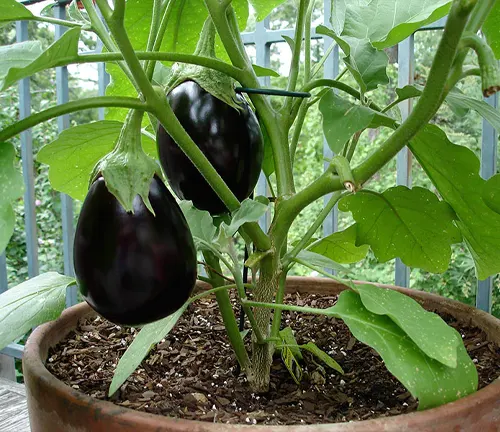
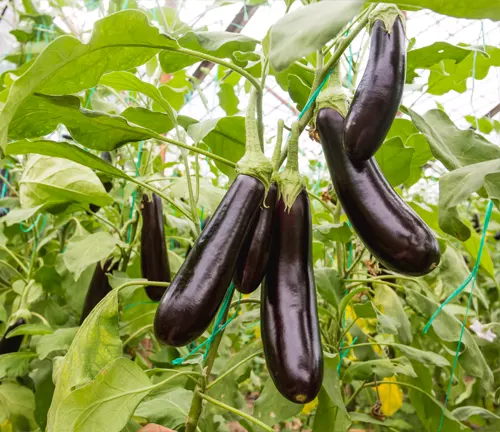
Common Varieties
There’s a plethora of eggplant varieties, each with its unique size, shape, and flavor profile. From the classic Black Beauty to the exotic Japanese varieties, understanding the options enhances cultivation success.
Unique Characteristics
Exploring the distinct features of various eggplant types provides insight into selecting the most suitable varieties for different climates and preferences.
Growing Conditions
Soil Requirements
Eggplants thrive in well-draining, nutrient-rich soil. We uncover the secrets of preparing the ideal soil bed for optimal growth.
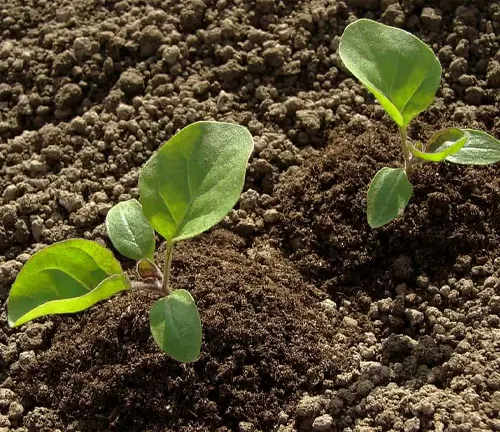
Sunlight and Temperature Needs
Understanding the sunlight and temperature preferences of eggplants is crucial for cultivating healthy plants. Learn how to create the perfect microenvironment.
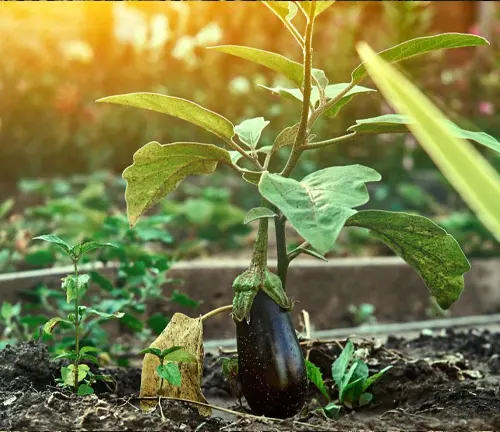
Watering Guidelines
Watering is a delicate balance in eggplant cultivation. Discover the right watering techniques to prevent issues like blossom end rot.
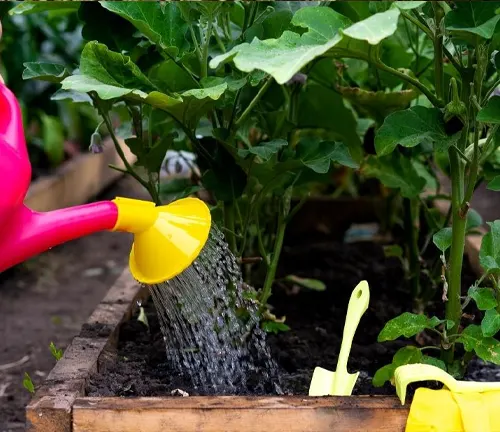
Planting and Propagation
Seed Planting
Delve into the intricacies of starting eggplants from seeds. From germination to transplanting, we guide you through the initial stages.
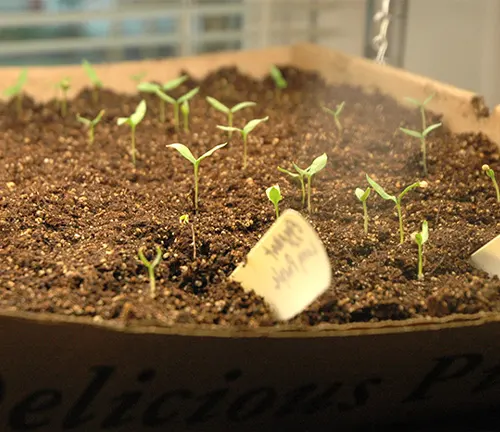
Transplanting Techniques
Master the art of transplanting young eggplant seedlings, ensuring a smooth transition from seed tray to garden bed.
Maintenance and Care
Pruning Tips
Pruning promotes vigorous growth and higher yields. Learn the art of strategic pruning for optimal results.
Fertilization Strategies
Fertilizing eggplants requires a balanced approach. We provide insights into the nutrients essential for robust plant development.
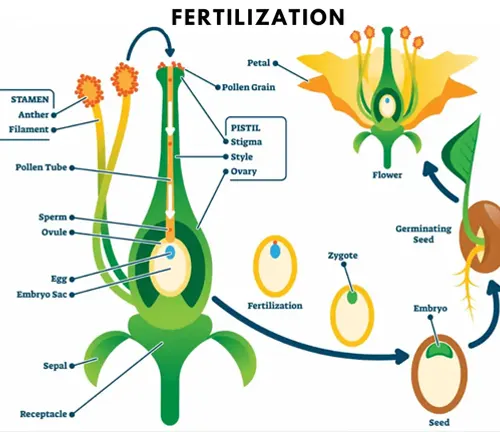
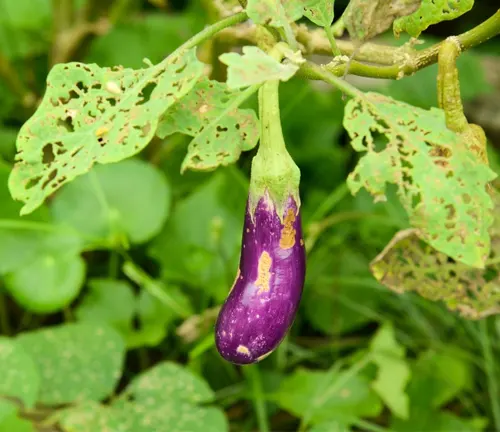
Pest and Disease Management
Eggplants are susceptible to certain pests and diseases. Arm yourself with effective, eco-friendly strategies for pest control and disease prevention.
Harvesting and Storage
Optimal Harvest Time
Timing is crucial for harvesting flavorful and tender eggplants. Discover the signs that indicate the perfect moment to pick your crop.
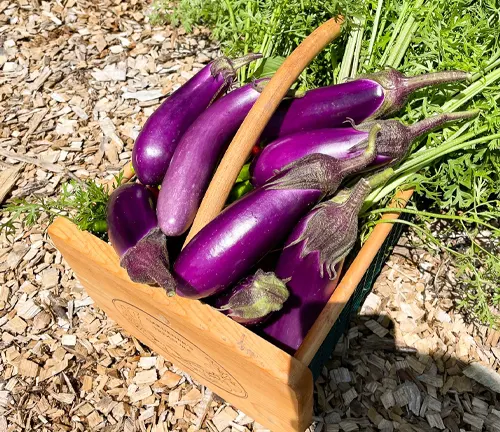
Storage Recommendations
Proper storage ensures the longevity of harvested eggplants. Uncover the best practices for preserving freshness.
Culinary Uses
Popular Recipes
From classic eggplant parmesan to innovative dishes, explore a variety of mouth-watering recipes that make the most of this versatile vegetable.

Nutritional Benefits
Delve into the nutritional profile of eggplants, highlighting their contribution to a healthy diet.

Cultural Significance
Historical Importance
Tracing the historical roots of eggplant cultivation unveils its journey from Asia to global prominence.
Symbolism in Different Cultures
Explore how eggplants symbolize different concepts in various cultures, adding a layer of cultural richness to their cultivation.
Challenges in Eggplant Cultivation
Common Issues
Recognize common challenges faced by eggplant growers and implement effective solutions for a thriving garden.

Troubleshooting Tips
Troubleshoot problems like yellowing leaves or stunted growth with practical tips to revive your eggplant plants.
Sustainable Practices
Organic Cultivation Methods
Embrace organic farming techniques for eggplants, promoting environmental sustainability and producing healthier crops.
Eco-friendly Approaches
Discover eco-friendly practices that minimize the environmental impact of eggplant cultivation.
Future Trends in Eggplant Farming
Technological Advancements
Explore cutting-edge technologies shaping the future of eggplant farming, from precision agriculture to smart irrigation systems.
Market Trends
Understand the evolving market trends for eggplants, catering to the demands of consumers and ensuring commercial success.
Community Involvement
Community Gardens
Dive into the concept of community gardens, fostering a sense of unity and shared responsibility in eggplant cultivation.
Educational Initiatives
Support and participate in educational programs that promote awareness about the benefits of eggplant cultivation in communities.
Environmental Impact
Carbon Footprint
Explore the carbon footprint of conventional eggplant farming and discover ways to reduce environmental impact.
Biodiversity Considerations
Understand the role of eggplant cultivation in maintaining biodiversity and explore practices that support a healthy ecosystem.
Conclusion
In conclusion, cultivating eggplants goes beyond the kitchen; it’s a journey filled with cultural significance, sustainability practices, and delicious rewards. Whether you’re a home gardener or a commercial farmer, embracing the intricacies of eggplant cultivation can lead to a bountiful harvest and a deeper connection to the food on your plate.
Different Species
Solanum melongena var. esculentum
(Common Eggplant)
This is the most widely cultivated species, featuring the familiar glossy, purple-skinned fruits. Commonly used in culinary applications around the world.
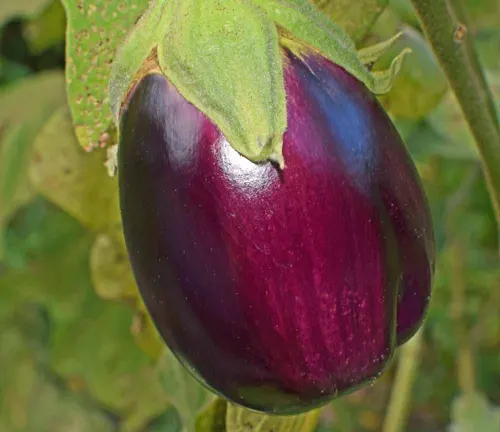
Solanum melongena var. depressum
(Dwarf Eggplant)
Characterized by its compact size, the dwarf eggplant is suitable for small gardens or container planting. It still produces regular-sized fruits.
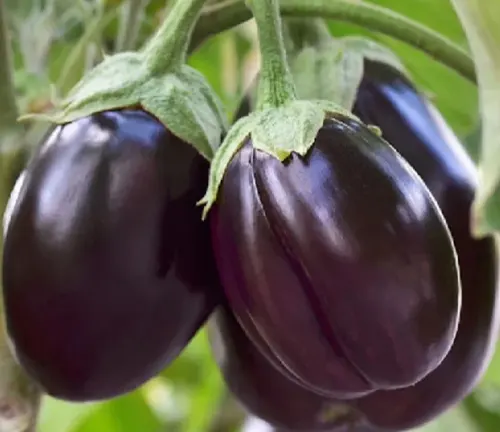
Solanum melongena var. serpentium
(Snake Eggplant)
Also known as snake gourd or snake melon, this variety produces long, slender fruits with a unique, serpentine appearance.

Solanum melongena var. insanum
(Graffiti Eggplant)
Recognizable by its small, colorful fruits, the graffiti eggplant has a striking appearance with a mix of purple and white stripes.
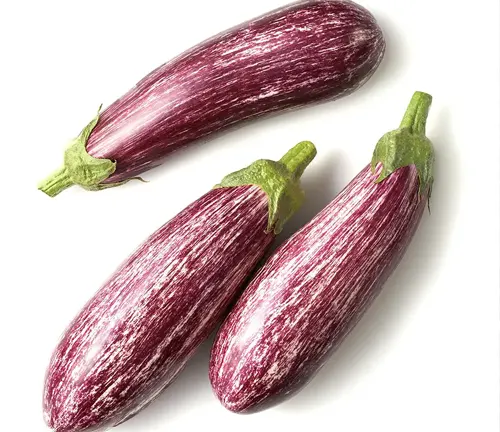
Solanum melongena var. indicum
(Indian Eggplant)
Widely used in Indian cuisine, this variety includes smaller, round eggplants with a deep purple color. It is prized for its flavor and texture.
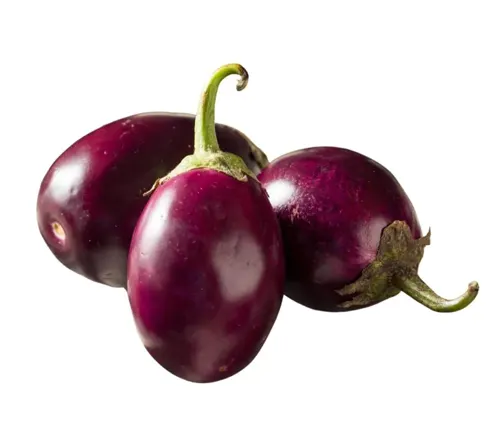
Solanum melongena var. ovigerum
(Easter Egg Eggplant)
This unique variety produces egg-shaped fruits in various colors, resembling small eggs. It adds visual interest to gardens and culinary dishes.
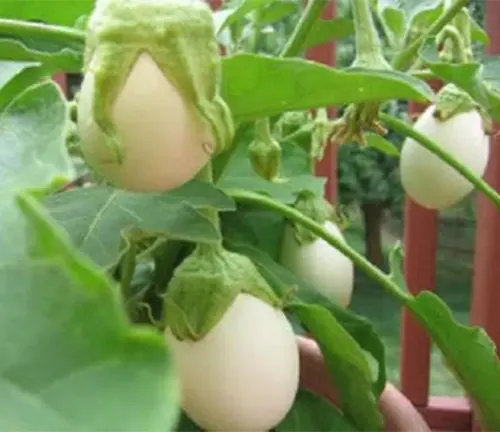
Solanum aethiopicum
(African Eggplant)
Also known as garden egg or bitter ball, this species includes various cultivars with different-sized, often round fruits. It is commonly used in African cuisines.
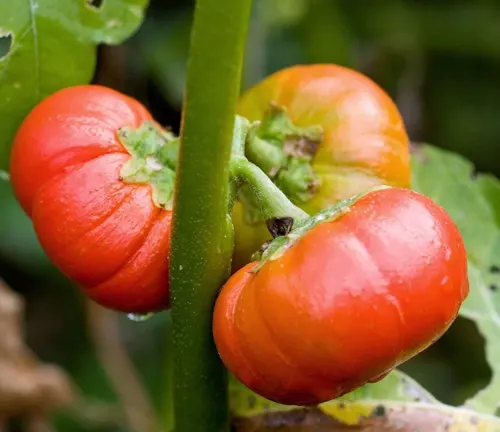
Solanum macrocarpon
(Hairy Eggplant)
This species, also called gboma or garden egg, is known for its hairy or fuzzy appearance on the leaves and stems. The fruits are typically small and round.

Solanum torvum
(Turkey Berry)
Often referred to as pea eggplant, turkey berry produces small, round fruits and is commonly used in Asian and Caribbean cuisines.
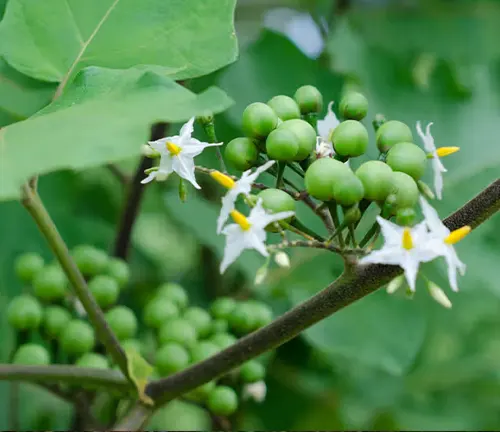
Solanum integrifolium
(Nepalese Eggplant)
Native to Nepal, this eggplant species produces small, green fruits and is used in traditional Nepalese dishes.
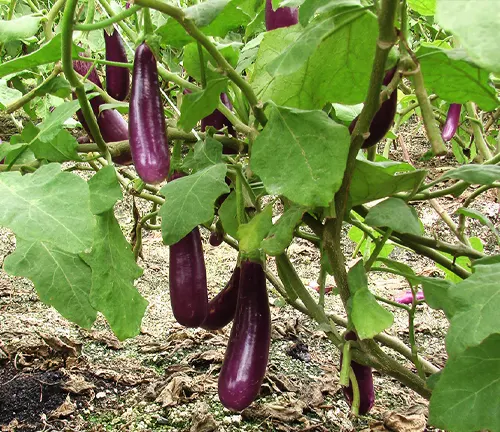
Frequently Asked Questions (FAQs)
- How do I know when my eggplants are ready to be harvested?
Ripe eggplants typically have a glossy appearance, firm texture, and vibrant color. Use a gentle thumb pressure test to check for ripeness. - Can I grow eggplants in containers, and what are the container size requirements?
Yes, eggplants can be grown in containers. Use containers that are at least 5 gallons in size to allow sufficient space for root development. - What are common pests that affect eggplants, and how can I control them naturally?
Common pests include aphids, flea beetles, and spider mites. Natural control methods include neem oil, companion planting, and introducing beneficial insects. - How long does it take for eggplant seeds to germinate?
Eggplant seeds typically germinate within 7 to 14 days under optimal conditions, which include warm soil and consistent moisture. - What is the best time to plant eggplants in my region?
Plant eggplants outdoors after the last frost, when the soil has warmed up to around 70°F (21°C). - Can I eat eggplant seeds, or do I need to remove them before cooking?
While eggplant seeds are edible, they can have a slightly bitter taste. Many recipes recommend removing larger seeds for a smoother texture. - Are there any companion plants that benefit eggplants in the garden?
Companion plants like basil, marigold, and oregano can help deter pests and improve the overall health of eggplant plants. - How often should I water my eggplants, and what is the best watering method?
Eggplants prefer consistent moisture. Water deeply and regularly, aiming to keep the soil evenly moist but not waterlogged. - Can I grow eggplants from cuttings, or is it better to start from seeds?
While eggplants can be grown from cuttings, it’s more common to start them from seeds for better control over plant development. - Are there any alternative uses for eggplants besides culinary purposes?
Yes, eggplants have been used traditionally for medicinal purposes, such as treating burns and wounds. However, it’s essential to consult with healthcare professionals for such applications. - What are some common diseases that affect eggplants, and how can I prevent them?
Eggplants are susceptible to diseases like verticillium wilt and powdery mildew. Preventive measures include crop rotation, proper spacing, and using disease-resistant varieties. - Can I save seeds from my harvested eggplants for the next planting season?
Yes, you can save seeds from mature, fully ripened eggplants. Ensure proper drying and storage conditions for successful seed saving. - Are there any eggplant varieties that are suitable for colder climates?
Some eggplant varieties, such as the “Northern Pick,” are bred specifically for colder climates. Look for varieties with shorter growing seasons. - Do eggplants require support, and what is the best method for staking them?
Depending on the variety, some eggplants may benefit from staking. Use stakes or cages to support the plants and prevent them from bending or breaking under the weight of fruits. - Can I grow eggplants indoors, and what are the key considerations for indoor cultivation?
Yes, you can grow eggplants indoors. Ensure they receive sufficient sunlight, use well-draining soil, and consider providing additional light with grow lights if needed.




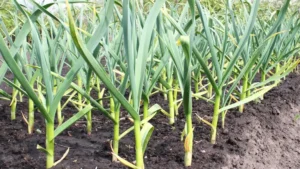
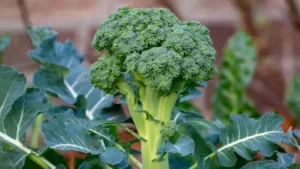
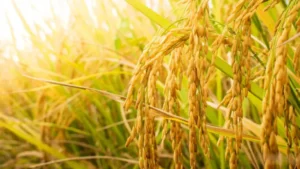

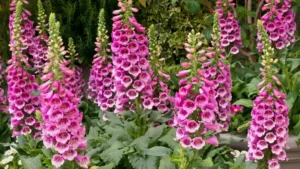





Leave your comment